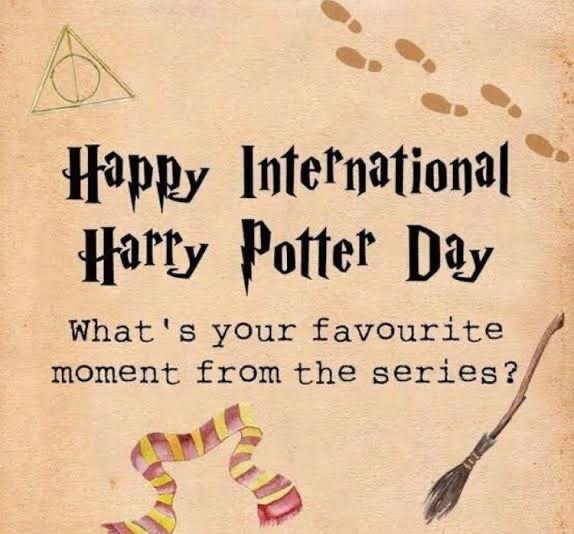Harry Potter is not magic for everybody
As the boy wizard casts his sales spell for Bloomsbury again, other publishers - and many booksellers - are outside the charmed circle, says Zoe Wood
Sunday July 1, 2007
The Observer
'Our main concern is that shopping habits are changing,' says one senior executive. 'The supermarket offer is concentrated on the bestseller list, which means a limited range of books sell an awful lot more than anything else, usually at half the cover price.'
The might of the supermarkets and ascendance of Amazon is also making life difficult for booksellers, with high-street sales estimated to be down almost 2 per cent so far this year, though the overall market is in growth. The tough sales climate is supported by Waterstone's decision to retrench, Borders' plans to offload its UK division, as well as problems at Fopp, which has gone into receivership. Indeed, despite the expected sales bonanza, HSBC analyst Paul Smiddy says Harry Potter and the Deathly Hallows will amount to a 'black hole' in summer trade when it goes on sale on 21 July. The majority of booksellers will lose money on the title as they try to match the aggressive pricing of Tesco, Asda and Amazon, while no sensible rival publisher would dare launch a decent title against it, he says. Most retailers accept that only Bloomsbury and JK Rowling will profit from Harry Potter. 'I don't think retailers will make any money, when you take account of the stunts and midnight openings,' says Neil Dewsbury, commercial director at Waterstone's. But although the chain is selling the book at half price for 8.99, he still believes it creates a massive opportunity. Internet pre-orders are 100 per cent ahead of Harry Potter and the Half Blood Prince But even for Bloomsbury the joy could be shortlived. The series is supposed to end here, and in the absence of Potter magic its profits crashed by nearly 75 per cent last year. To fill the void it has been bandying around 2m advances to the likes of cookery writer Hugh Fearnley-Whittingstall, earning the soubriquet of the 'Roman Abramovich of publishing'. So just as Tesco looms large in retail, the publishing industry is also polarising, says Smiddy: 'Big outfits are doing OK, as are the boutiques, but those in the middle are suffering, because to participate they have to put big advances up for books by B-list celebrities or politicians' memoirs.' But supermarkets would argue they are the consumer champion - books have never been cheaper. They are helping publishers grow the cake, reaching a younger, female readership with good-natured romps penned by the likes of Katie Price (aka Jordan) and Chantelle. But insiders argue that cheap books come at a cost, albeit a cultural one, with areas such as serious non-fiction in decline. Dewsbury rebuts the charge that its centralised processes and publisher-funded '3 for 2' promotions are damaging the industry, arguing that diluting Waterstone's offer would be 'commercial suicide. Our ambition is to sell a great range of books. There are new titles coming out daily, from serious literary fiction to children's books. The customer has never had it so good'. But just as Waterstone's is berated for bowing to the mass market, the big publishers are accused of cutting lists, leaving it to small publishing houses to pick up books for small advances. Whether the level of depression among publishers, often considered a gloomy lot, is higher than normal is difficult to gauge. Andrew Franklin, managing director of Profile Books which struck gold with Eats, Shoots & Leaves by Lynne Truss, says publishers are 'always complaining - I don't think things are too bad.' A supermarket will stock about 250 titles against up to 25,000 in a specialist bookshop and Franklin worries their power could make it harder to find a platform for edgier material: 'Making a new lesbian author work at a commercial level could get difficult if the supermarkets shy away.' Joel Rickett, deputy editor of the Bookseller, is optimistic, pointing out the total market is registering growth, albeit in volume rather than value sales. 'The actual sale of printed books continues to rise, and by our rolling measure the market is 3 per cent up over the past 12 months,' he says. However, he concedes times are changing: 'Sales of the top 100 books continue to rise, and big publishers continue to take market share. As a result, you have a longer tail of books selling in ever smaller numbers. But there are still more books in a branch of Waterstone's than you could read in your lifetime.' Commentary: fear the revolution In 1977, your average Martian visiting a typical British bookshop would have concluded that whatever these stores were selling must be something shameful, marginal, and of limited interest to earthlings. Bookshops were inhospitable, badly lit and poorly stocked. New books mostly had to be ordered, a tedious process that might take six weeks. Even when, or if, they turned up, the new books themselves were hardly more appetising. Almost every new publication appeared first in hardback, in a dowdy-looking jacket, closely printed in some bog-standard font on inferior paper. One word summed up the world of books: 'dingy'. Today the transformation seems comprehensive: bright, appealing shops; almost instant delivery; attractive hard and paperback books piled high on all sides. It's like a comparison between David Cameron and Jim Callaghan. And yet, if you talk to a contemporary publisher you will hear only apocalyptic expressions of doom and gloom. Last week alone, no fewer than three senior figures in the British book trade confided to me their despair at the trading conditions in which they were forced to operate. Part of this, of course, is the British publishers' conversational default position. Like farmers, they are never happier than when complaining about the state of their crops and the barrenness of their parched acres. But that's not the whole story. Objectively, there are good grounds for saying the traditional book business faces a near-terminal crisis. This may well be a golden age for readers and writers in the English-speaking world, but at the same time the book industry is in the midst of the biggest IT revolution since Gutenberg and Caxton. The Google library initiative and the internet as a whole offer mind-bending opportunities to entrepreneurs in the information business, but they confront traditional publishers with some apparently mortal threats as well. In addition to the technological challenge of the IT revolution (a book after all is just another, more ancient 'delivery system'), there are the unquestionably worsening terms of trade, the shaving of margins, and the incipient gangsterism of the book chains. Since the abolition of the Net Book Agreement in 1997 the transformation of the bookshops has been bought at a cost: a highly visible minority of books sell very well indeed, and probably better than ever, while the majority struggle to perform. The profits from fewer and fewer mega-selling titles are required, more than ever before, to carry the losses sustained by the rest of the list. Inexplicably, this crisis is exacerbated by astounding overproduction. As recently as 10 years ago, there were approximately 100,000 new titles published each year in the UK. Today, that figure is nudging close to 200,000. Pro rata, this outstrips new book production in America, the EU, and every other book market in the developed world.Simultaneously, the research and development of an electronic reader (an 'iPod for books') is on the brink of threatening the traditional book with overnight redundancy. Industry analysts look nervously at the transformation of the music business, and wonder when a similar revolution will strike the print world. The short answer is, in the words of Hollywood scriptwriter William Goldman: no one knows anything.
< = =text/>



















37